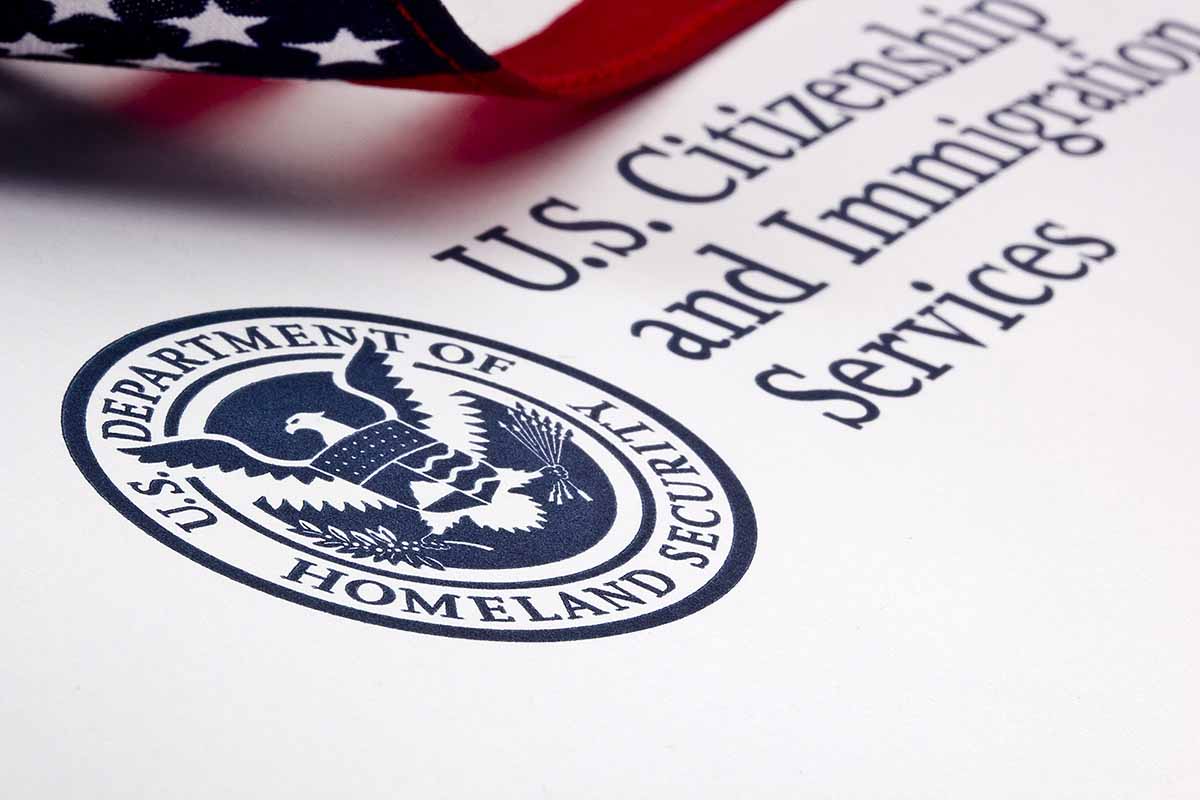The Trump Justice Department Announces
It Will Prioritize Investigations and Enforcement Actions
To Revoke Citizenship (Denaturalization)
In a June 11, 2025, Memo to the Civil Division of the Department of Justice, Assistant Attorney General Brett Shumate announced that President Trump and Attorney General Bondi have directed the Civil Division to prioritize investigations and enforcement actions relating to denaturalization, or revocation of citizenship, of naturalized citizens who have been charged with or convicted of certain categories of crimes. The Memo directs Civil Division employees to initiate civil proceedings to revoke U.S. citizenship if citizenship was “illegally procured” or obtained through “concealment of a material fact or by willful misrepresentation” under 8 U.S.C. § 1451(a).
The memo prioritizes enforcement action against individuals charged with certain categories of crime:
- Cases against individuals who pose a potential danger to national security, including those with a nexus to terrorism, espionage, or the unlawful export from the United States of sensitive goods, technology, or information raising national security concerns;
- Cases against individuals who engaged in torture, war crimes, or other human rights violations;
- Cases against individuals who further or furthered the unlawful enterprise of criminal gangs, transnational criminal organizations, and drug cartels;
- Cases against individuals who committed felonies that were not disclosed during the naturalization process;
- Cases against individuals who committed human trafficking, sex offenses, or violent crimes;
- Cases against individuals who engaged in various forms of financial fraud against the United States, including Paycheck Protection Program (“PPP”) loan fraud and Medicaid/Medicare fraud;
- Cases against individuals who engaged in fraud against private individuals, funds, or corporations;
- Cases against individuals who acquired naturalization through government corruption, fraud, or material misrepresentations, not otherwise addressed by another priority category;
- Cases referred by a United States Attorney’s Office in connection with pending criminal charges, if those charges do not fit within one of the other priorities; and
- Any other cases referred to the Civil Division that the Division determines to be sufficiently important to pursue.
Notably, the Memo indicates that these categories guide the Civil Division but do not restrict it from pursuing other cases deemed important . . . meaning the list of potential crimes is not exclusive.
The statute being weaponized (8 U.S.C. 1451) has been on the books for years but has not been used extensively. By law, denaturalization occurs by a judicial order, either through civil proceedings or a criminal conviction for naturalization fraud. The process usually starts with the U.S. Citizenship and Immigration Services (USCIS) referring cases for civil and criminal denaturalization when there is “sufficient evidence” that an individual is subject to one of the grounds of denaturalization. The DOJ’s U.S. Attorney’s Office must then file revocation of naturalization actions for civil denaturalization cases (addressed in the June 11, 2025 Memo) or criminal charges (for criminal denaturalization cases) in Federal District Court.
What is new is the Justice Department’s stated intent to amplify and aggressively expand the use of denaturalization as yet another tool of its immigration policy, and what appears to be an exceptionally broad view of its discretion. As such, criminal defense lawyers who represent naturalized citizens should be aware of the potential that the Civil Division may bring a denaturalization proceeding based on the client’s criminal conviction or conduct that may be charged and result in a conviction. Criminal attorneys aware of the legal requirements for denaturalization will be able to strategize and provide nuanced legal advice to avoid triggering a basis for such action or satisfying the Government’s burden of proof through admissions. For instance, a factual allocution in a plea may provide the basis for denaturalization if it establishes that a particular crime occurred within the statutory period before the person naturalized, even where conviction of the crime occurs after naturalization. See United States v. Dunor, No. 2:14-CV-802, 2016 U.S. Dist. LEXIS 32547 (S.D. Ohio, Mar. 14, 2016) (After naturalizing, Dunor convicted of conspiracy to possess and utter counterfeit securities, bank fraud, and money laundering, crimes involving moral turpitude because they involve fraud or deception; conduct occurred within the statutory period, establishing basis for denaturalization); United States v. Guerrero, No. CV-10-525-ST, 2010 U.S. Dist. LEXIS 142520 (D. Or. Dec. 21, 2010) (Court granted summary judgment in favor of Government on basis of defendant’s plea in 2001 to child sex abuse acts committed during period of time (1991-1994) overlapping the statutory period before naturalization in 1996.
The danger to criminal defendants who are naturalized citizens is evident, and far-reaching. In addition to returning the person to the status occupied before naturalization (and potentially making them eligible for removal and/or inadmissibility on the basis of the criminal conviction), revocation of citizenship may also affect family members. For instance, the spouse or child of a person whose U.S. citizenship is revoked loses his or her U.S. citizenship at the time of revocation in cases where:
- The spouse or child became a U.S. citizen through the naturalization of his or her parent or spouse whose citizenship has been revoked; and
- The parent or spouse’s citizenship was revoked on the ground that his or her naturalization was procured by concealment of a material fact or by willful misrepresentation.
See 8 U.S.C. Section 1451(d).
Working with experienced immigration counsel may help ensure the naturalization process is completed properly and may reduce the risk of issues arising later. Working with a criminal defense attorney who recognizes the dangers this new enforcement policy presents to naturalized (or naturalizing) citizens who are charged with crimes or have committed undisclosed criminal acts is essential to avoid the devastating consequences of revocation on the client and his or her family.
Stahl Gasiorowski Criminal Defense Attorneys have represented hundreds of individuals who are naturalized citizens, Lawful Permanent Residents and others here without legal status who are under investigation or face charges. We have the experience and skills to effectively navigate our clients through these complex issues and investigations to achieve the best possible outcome. If you are looking for a crypto fraud lawyer,wire fraud lawyer, securities fraud lawyer or healthcare fraud lawyer, contact Ms. Gasiowski at lkg@sgdefenselaw.com or Mr. Stahl, at rgs@sgdefenselaw.com. Call 908.301.9001 for the NJ office or 212.755.3300 for the NYC office.



